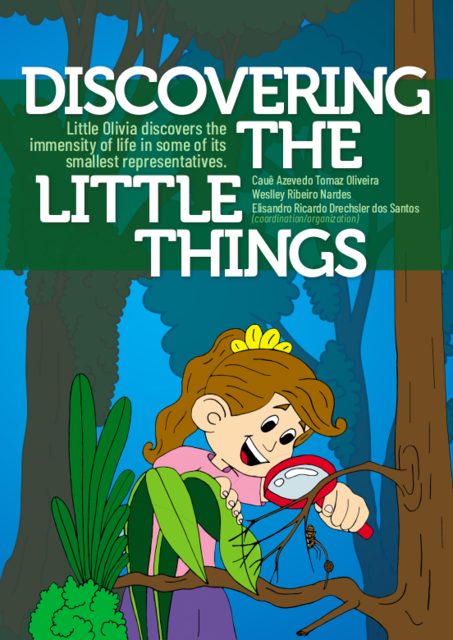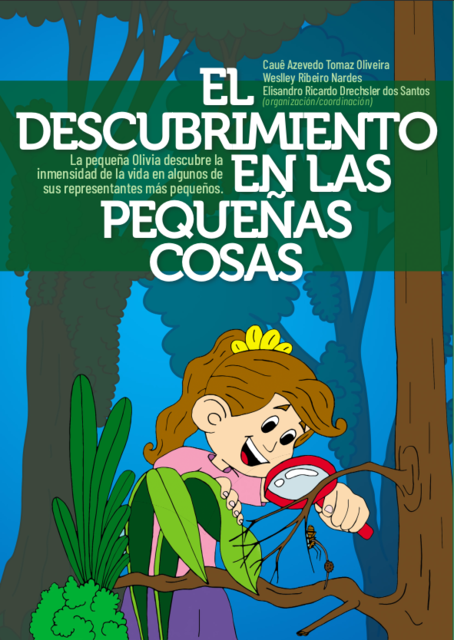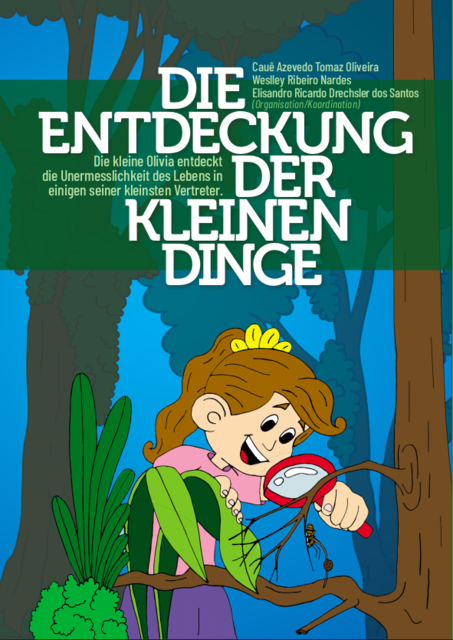-
Trametopsis brasiliensis opens the list of assessed species

1st Brazilian Workshop on Fungal Species Assessment for the IUCN Global Red List
The MIND.Funga team in partnership with members of the IUCN Commission for the Survival of Fungal Species is promoting the 1st Brazilian Fungal Species Assessment Workshop for the IUCN Global Red List. In this week (Nov 18-22), the event will be in the third meeting:
- 1st meeting: the group will discuss the application of the IUCN criteria for assessing the conservation status of species through theoretical and practical activities;
- 2nd meeting: Workshop guests will bring assessment information of 2 or 3 species already in the proposal format to be on the IUCN red list. The proposals will be discussed and improved with the support of the professors;
- 3rd meeting: each participant will present new assessment information together with the species already discussed in the second meeting and the proposals will be evaluated by certified IUCN evaluators (Gregory M. Mueller and Jessica Allen).
We invited 17 mycologists and lichenologists (mostly Brazilians) to participate in this important initiative for the conservation biology and recognition of Funga.
The main idea of the event is to engage Brazilian mycology/lichenology specialists in the extremely important topic of conservation. In this way, we hope that those involved are trained throughout the process and continue to propose species for the global list. We need, as Brazilian mycology, to generate a wave of collaborations and that is why we have as supporting partners, the Species Survival Commission International Union for Conservation of Nature (SSC IUCN), MIND.Funga/MICOLAB/UFSC, the Brazilian Society of Mycology (SBMic), the Center for Specialists in Mycology of the Botanical Society of Brazil (NEMic from SBB), and the INCT Virtual Herbarium of Flora and Funga.
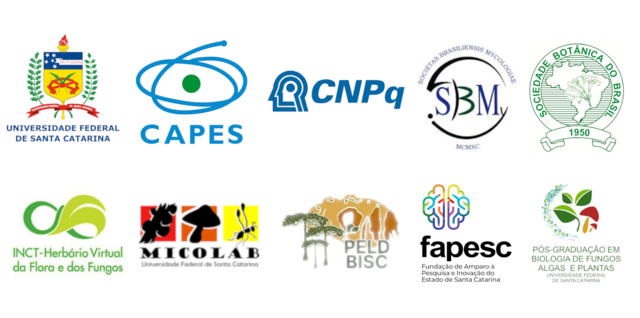
-
Funga for everyone!
Citizen Science Program:
The biologist and master’s student Mahatmã Titton explain to the MIND.Funga readers the unfoldings of the implementation of the Citizen Science Program.

The MIND.Funga research group, to show the importance of the fungi and promote conservation, developed the Citizen Science Program. In this context, the researchers do more than going on the field to collect and discover the diversity of the species. Through training and provision of an App for smartphones, the program involves the local community to horizontalize the science.
It’s a way of using Science to positively impact society and diffuse knowledge. The biologist and master’s student Mahatmã Titton was interviewed to report how specialists, citizen scientists, and technology walk together in this special project.
What’s the importance of debating the “Fungi” theme on society?
The fungi are still little known, especially in our society which is mycophobic, and it is through work with the community and the society in general that we will show that fungi are not threatening. Instead, they are being threatened with extinction.
How can a volunteer identify the diversity of the species on the field? It’s a matter of training the look of our own scientist…
This is a very cool point, the perspective training it’s constant. It starts from the first contact with the program in which we present what fungi are, in what substrates they can be found, what sporomes are, how they feed themselves, and if there is any danger in touching or eating… We noticed that first the collaborators only started sending a few images with no names. After a while, they received the return of the identifications and in a few cases they automatically started sending more images, and some of them were recognized by themselves.
The photos are kept saved in the app and in our database, this way it is easier to call the researchers from the group and ask for help to review the records made by the collaborators. So, after this curation, we send an email with the possible identification of the images. Still, about the curation, we have a WhatsApp group, where we answer questions directly to the collaborators, for example: Which will be the next steps of the project, if the submissions are correct, if there were any problems, and if they had any doubts regarding the identification, etc…
What’s the importance of the scientists collaborating between them in projects focused on identifying and learning about fungi diversity? How the institutions (Universities, laboratories, research institutes) can help in this dialogue between researchers?
There are base projects that can help new research in the future. Furthermore, we are noticing that many of the species in these critical ambients are under serious threat. I believe that through multidisciplinary meetings and discussions, institutions can collaborate with this delicate issue, and also provide resources to projects and programs aimed at the conservation of these threatened ambients and organisms. In my perspective, it is useless to have a healthy society while nature, which serves us a lot, is sick.
Species of flora, fauna, and fungi interact with each other. Biodiversity depends on these interactions. How can the study of fungi support the preservation of fungi, animals, plants?
Fungi are essential to life on earth. It is the whole base of the food chain. All organisms on earth depend on them in some way, directly or indirectly. Understanding how species relate to each other, how they develop, how they reproduce and provide food for other beings, among other details… Can make science take another perspective, practically everything we have today was produced through observation and comprehension, and perhaps, it may not be different when there is a whole universe of organisms waiting to be discovered and studied.
Edited by Genivaldo Alves-Silva and the MIND.Funga Communication team
-
The 1st Brazilian Workshop on Fungal Species Assessment for the IUCN Global Red List

The MIND.Funga team in partnership with members of the IUCN Commission for the Survival of Fungal Species is promoting the 1st Brazilian Fungal Species Assessment Workshop for the IUCN Global Red List. The event will take place in three online meetings in September and October:
- 1st meeting: the group will discuss the application of the IUCN criteria for assessing the conservation status of species through theoretical and practical activities;
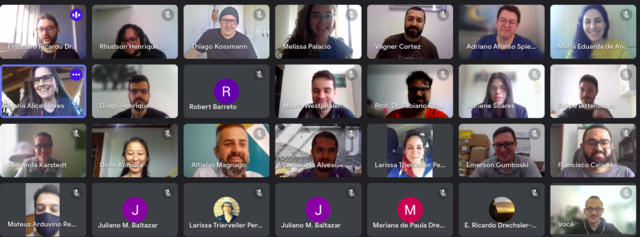
Participants of the first meeting of the 1st Brazilian Workshop on Fungal Species Assessment for the IUCN Global Red List.
- 2nd meeting: Workshop guests will bring assessment information of 2 or 3 species already in the proposal format to be on the IUCN red list. The proposals will be discussed and improved with the support of the professors;
- 3rd meeting: each participant will present new assessment information together with the species already discussed in the second meeting. The proposals will be evaluated by a certified IUCN evaluator, and each participant will have about 10 proposed species and evaluated in the first stage of the preposition.
We invited 17 mycologists and lichenologists (mostly Brazilians) to participate in this important initiative for the conservation biology and recognition of Funga.
The main idea of the event is to engage Brazilian mycology/lichenology specialists in the extremely important topic of conservation. In this way, we hope that those involved are trained throughout the process and continue to propose species for the global list. We need, as Brazilian mycology, to generate a wave of collaborations and that is why we have as supporting partners, the Species Survival Commission International Union for Conservation of Nature (SSC IUCN), MIND.Funga/MICOLAB/UFSC, the Brazilian Society of Mycology (SBMic), the Center for Specialists in Mycology of the Botanical Society of Brazil (NEMic from SBB) and the INCT Virtual Herbarium of Flora and Funga.

-
MIND.Funga citizen science
MIND.Funga citizen science: children’s literature meets fungal taxonomy in the schools through “SBPC Vai à Escola
The children’s book “Discovering the little things”, produced by MIND.Funga with the support of SBPC, FAPESC, CNPq, and CAPES is now available also in English, German and Spanish versions, in addition to the original Portuguese version.
Read more about our project and download the versions of our book by clicking on the book cover above. -
Class:

1st Symposium of Fungal Diversity Conservation in Cloud Forest
The 1st Symposium of Fungal Diversity Conservation in Cloud Forest emerges as result of the activities of the research groups of the Laboratory of Molecular and Computational Biology of Fungi (UFMG) and MIND.Funga (MICOLAB-UFSC) in the quest to get to know the Funga of a megadiverse ecosystem, full of endemisms and heavily threatened, the Cloud Forests. The main objective of the symposium is to demonstrate to the participants the importance of studying Funga in this environment. The event’s target audience is undergraduate and graduate students, professors, and researchers. The speakers (national and international) will present results and perspectives of research carried out with fungi in Cloud Forests around the world, from the perspective of biodiversity, the potential for discovering new species, ecology, and conservation.
Follows the web site link: http://sympfungacf.com.br/
-
Course BOT7027
Diversity and Conservation of Macrofungi BOT7027

How about learning a little more about the enormous diversity of macrofungi?
The elective course “Diversity and Conservation of Macrofungi” will be offered during the 2020.2 semester (February 1 to May 17) by the PhD professors here at MIND.Funga, Elisandro Ricardo Drechsler-Santos and Genivaldo Alves Silva! Classes will take place every Monday in the afternoon and will feature asynchronous and synchronous meetings.
You’re all invited!





